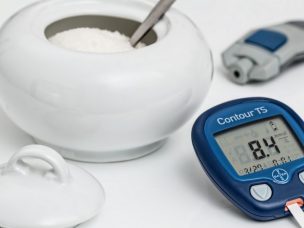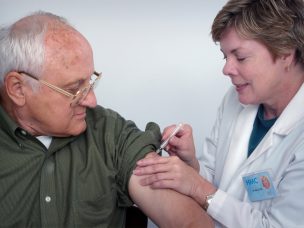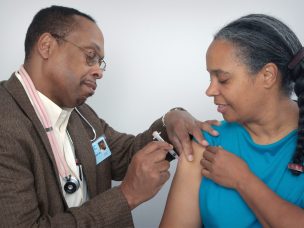February 1, 2021
Telemedicine Use Increased Considerably During COVID-19
MONDAY, Feb. 1, 2021 (HealthDay News) — Telemedicine use increased considerably during the COVID-19 pandemic, with lower use in communities with higher rates of poverty, according to a study published in the February issue of Health Affairs. Sadiq Y. Patel, Ph.D., from Harvard Medical School in Boston, and colleagues examined variation in total outpatient visits...
Blood Eosinophils Determined to Strongly Predict Asthma Exacerbation Risk
Benralizumab has emerged as one of the most efficacious therapies for individuals dealing with severe, uncontrolled eosinophilic asthma. Benralizumab is an interleukin-5 receptor cytolytic monoclonal antibody drug that significantly reduces eosinophil levels in the blood, leading to fewer asthma exacerbations. This study looks at the relationship between the efficacy of benralizumab and baseline blood eosinophil...
Benralizumab and Prednisolone Quickly Lower Eosinophil Levels
Treatment for eosinophilic asthma has found great success with two primary anti-IL-5 therapies: mepolizumab and benralizumab. Both drugs have yielded positive results and are well-studied. However, much of the research regarding mepolizumab and benralizumab is over the long-term, supporting our understanding of the medications’ overall efficacy but leaving us with little understanding of their short-term...
T2DM Associated With Premature Heart Disease in Women
MONDAY, Feb. 1, 2021 (HealthDay News) — Women younger than 55 years with type 2 diabetes have a 10-fold greater risk for having coronary heart disease (CHD) over the next two decades, according to a study published online Jan. 20 in JAMA Cardiology. Sagar B. Dugani, M.D., Ph.D., from the Mayo Clinic in Rochester, Minnesota,...
Researchers Hone In On Anti-Interleukin-5 Antibody Responses
Recently, the anti-interleukin-5 antibody drugs mepolizumab and benralizumab have been approved for severe asthma. The purpose of this study was to analyze the way that patients respond to mepolizumab and benralizumab with respect to a few key indicators and metrics. In particular, the study focused on three bioindicators of airway hyperresponsiveness and remodeling: L-selectin, Krebs...
Coronary Artery Calcification Risk Up With Gestational Diabetes
MONDAY, Feb. 1, 2021 (HealthDay News) — Women with a history of gestational diabetes (GD) have an increased risk for coronary artery calcification (CAC) across all subsequent levels of glucose tolerance, according to a study published online Feb. 1 in Circulation. Erica P. Gunderson, Ph.D., M.P.H., from Kaiser Permanente Northern California in Oakland, and colleagues...
Outcomes Similar for Younger, Older Teens Undergoing Bariatric Surgery
MONDAY, Feb. 1, 2021 (HealthDay News) — Outcomes are similar for younger and older adolescents undergoing bariatric surgery, according to a study published online Feb. 1 in Pediatrics. Sarah B. Ogle, D.O., from the University of Colorado in Aurora, and colleagues enrolled 242 adolescents (≤19 years of age) who underwent bariatric surgery in a prospective,...
Premature Ovarian Insufficiency Tied to More Menopausal Symptoms
MONDAY, Feb. 1, 2021 (HealthDay News) — Women with premature ovarian insufficiency (POI) experience a high prevalence of menopausal symptoms, according to a study published online Jan. 18 in Menopause. Yizhou Huang, M.D., from the Zhejiang University School of Medicine in Hangzhou, China, and colleagues evaluated the prevalence, severity, and associated factors of menopausal symptoms...
Mepolizumab for the Treatment of Eosinophilic Asthma
Some individuals with asthma experience frequent exacerbations associated with eosinophilic inflammation. Often, these patients are taking multiple asthma medications, including inhaled glucocorticoids and oral glucocorticoids. The purpose of this study was to examine the results of administering mepolizumab to members of this cohort. The group used for this study, published in the New England Journal...








